With so many foreclosed properties out there, I believe it’s about time that we talked about how we can proactively prevent foreclosures…
If you’re thinking “But I just want to invest in properties and this is not my problem…”, think again!
If you are planning to buy a property through a mortgage loan, installment payments, or even through in-house financing, things can happen, and you might end up losing your home if you are not prepared.
With that said, this basically affects everyone who plans to buy a property through some form of financing.
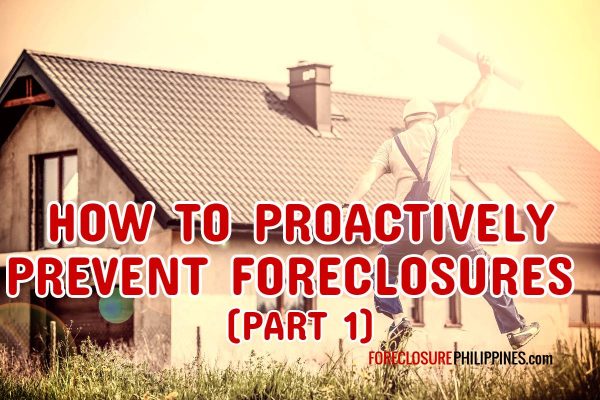
A costly mistake…
I remember the time my “super” broker/mentor brought me along to check a property that was facing foreclosure years ago. The house was old and dilapidated, but it was surrounded by nice house and lots in an okay neighborhood.
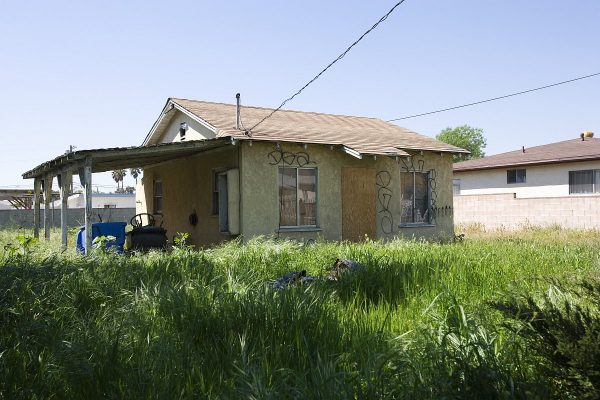
We both noticed that the selling price was too high compared to our market value estimates (based on the current going rates in that particular location).
I’ll paraphrase our conversation with the owner (who was having financial difficulties) below:
“Why are you selling at such a high price?” we asked.
The owner said “We had a very high appraisal because we knew someone from the inside, so we had a big loan amount. We have to sell at a high price so we can cover the whole loan balance.”
It was a sad scenario because even if we wanted to, we cannot buy the property, because it was overpriced. Even if we tried to help them to sell it, no end-user in their right mind would buy it, because there were other similar properties nearby that were cheaper and yet in better condition.
I just hope they found a way to avoid the foreclosure of that house.
Anyway, this is just one of the many reasons why people can end up in foreclosure and lose their homes. Let me summarize this and add more tips so that we can all proactively prevent foreclosures down the road. Here goes my list of proactive foreclosure prevention tips:
Proactive foreclosure prevention tips
1. Don’t “jack-up” your property’s appraisal to get a big loan amount – Yes, we all look for a high appraisal when getting a loan, but when it is jacked-up way beyond the actual market value, it can cause problems like what I shared above.
It’s okay to get a high appraisal, if it reflects the real market value of your property. If not, this can spell a huge problem when you need to sell the property later.
Imagine if the highest price you can get (the real market value ) was not even enough to cover your loan balance, then it will get foreclosed anyway.
If you try to raise the price so it can cover the loan balance, no one will buy at that price because they will choose the other properties that are selling at the right price.
But if you lower the price, it won’t be enough to payoff the loan (back to square one).
Big problem.
Lesson learned: Stick to the real market value!
2. Don’t buy a property just because someone said you can make passive income – This is something a lot of people fall for, mainly because they were made to believe the property they bought will make money through rentals.
They thought the rental income would be enough to cover most, if not the entire monthly amortization.
But later, when the property is ready for occupancy and is turned-over, the owner can’t even find tenants.
It could be because of too many other properties that are also for rent. Or maybe the location is really not that good and there’s simply no demand for rentals there. It can be a combination of both, plus a lot of other reasons.
This could easily be avoided by checking if there are actual rental units that are tenanted in that location, as part of due diligence. This would establish the real demand (or lack thereof) and actual rental rates, which should be the basis on whether to buy a rental property or not (obviously!).
Of course, when buying rental properties, there are so many more factors to consider like vacancy rates, collection losses, maintenance costs, property management, HOA/condo dues, etc., which I will no longer be able to discuss here.
By the way, things can get worse if a pre-selling property was bought via a low downpayment scheme where the low downpayment is stretched for several months/years. The monthly for the DP is manageable at first. But what if when it’s time for the unit turnover, it turns out the buyer cannot qualify for a bank loan for whatever reason? Then their only choice is in-house financing.
In-house financing often means higher interest rates as compared to bank loans. It can be as high as 18% per year (or more). Payment terms are also shorter, which results in very high monthly amortizations.
So if a buyer can’t get a tenant, they will find it hard to cope with the very high monthly amortizations, and they can really lose the property (the CTS will be cancelled).
More often than not, they won’t be able to get any of their payments back because they can only qualify for a refund under the Maceda Law, if they have been paying for 2 years or more. Even if they do qualify, the penalties, surcharges, etc. might eat up most of the cash surrender value.
So before buying a rental property (especially for pre-selling properties like the one I described above), better think about it long and hard before you decide.
3. Don’t go beyond 40% of your gross monthly income – There’s a reason why banks and other lending institutions require that your monthly amortization should not exceed 40% of your gross monthly income. (For me, it would be more conservative to use 40% of the net disposable income – income left after all obligations are paid).
This helps ensure that you are not living beyond your means, and you can truly afford that property you want to buy.
Tip: You can actually check this using our very own mortgage calculator, which also calculates for the required gross monthly income: Mortgage calculator
4. Don’t be too attached to a property – Obviously, people will get attached to a property when it has been their home for a long time. However, if the time comes when you can no longer afford it (due to a change in your capacity to pay… a loss of a job, or a failed business for example), if you are not too attached to it, you can actually let go and sell the property.
Selling is better than losing everything.
Other reasons that can cause the change in the capability of making those monthly payments would include the piling up of medical bills in case of sickness of the borrower or a loved one, etc. This brings me to my next tip…
5. Get more than adequate insurance – Imagine what would happen if you or a loved one got sick, it can get really expensive. What was meant for monthly amortizations have to be diverted to payments for hospital bills, doctor’s fees, medicine, etc, unless you have health insurance that can take care of these expenses.
How about if something happens to the borrower? Death will obviously mean loss of income, and can really lead to foreclosure down the road if those left behind don’t have enough income to continue payments.
This is why Mortgage Redemption Insurance (MRI) is often required by banks/lending institutions. In case of the borrower’s death, the loan becomes fully paid through the proceeds of the MRI.
MRI only applies to properties financed by a mortgage loan. For those under a CTS, getting an equivalent amount of life insurance is highly recommended. You should contact your insurance agent to learn more about your options.
Of course, MRI/life insurance that covers the loan might not be enough if you look at the big picture. You need more money to cover estate taxes, burial expenses, etc.
Related: Death, Real Estate, and Estate Tax
By the way, your property should also be insured with coverage for fire, acts of nature, etc., including coverage for rental income if it’s a rental property. Again, contact your insurance agent to learn more about what’s available out there.
To be continued…
I have more than a dozen tips to share, but this article is already too long at more than 1,000 words, so I’ll continue this with Part 2, and Part 3 (Yes, at the very least, this will be a 3 part series!)
Let me know what you think by leaving a comment below. Thanks.



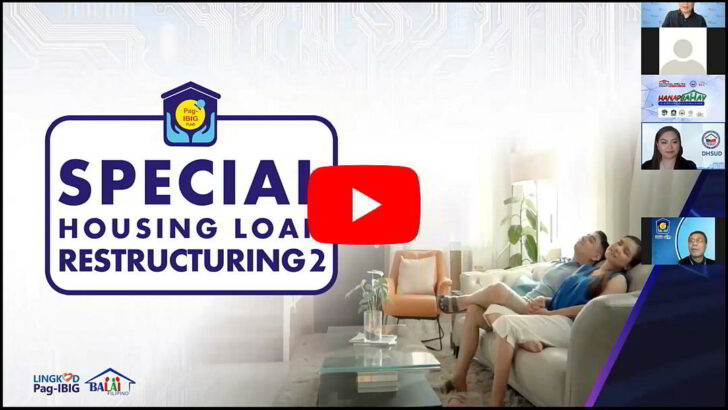
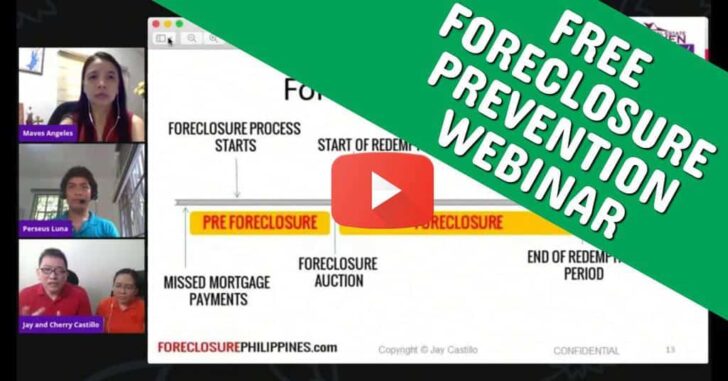

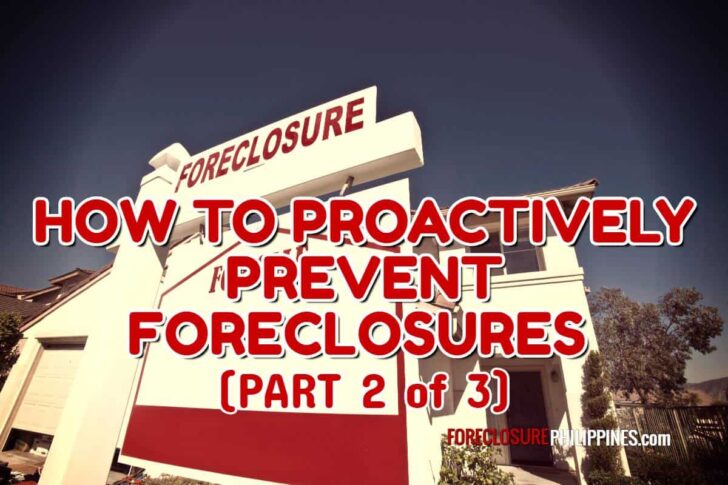
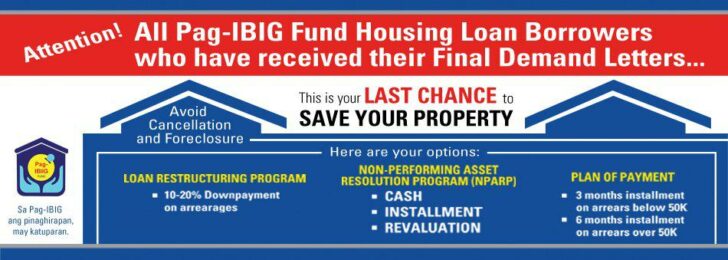

Hi Jay,
As to tip #1, am kind of lost with the explanation. What’s wrong with a loan of say 3M for a house that has a market value of 2M? Is this not good? If you can’t pay the loan then, a 2M house will be foreclosed but you have the 3M.
What you mentioned would be good, if you will really get the whole 3 million.
However, in my example above, the bulk of the loan was used for payment to buy the property, and then the borrower obviously used up what was left (they can no longer pay the monthly amortization). This is the typical scenario: A buyer will get a loan to buy a property, but he will pay a downpayment to the seller. When the buyer’s loan is released, the loan proceeds will be paid to the seller, and any excess will go to the buyer, if any, but this is usually a small fraction of the loan amount.
Keep in mind, that property was intended to be their primary residence, their whole family lives there.
So if they let the house get foreclosed (just like in your example), they will have no money left and the whole family will have no house to live-in… they will basically lose everything. Now that can’t be good.
Thank you sir for sharing your knowledge to us. If I may ask for some advice, my parents died last 2007 and they left me a house and lot in Quezon City (where I grew up) I dont live there anymore since I got married 20 years ago. I am an only child and I am now 50 years old. My question is: If you were me, what would you do to the property? How do you let go of the memories? I dont think my family wants to live there for reasons that I could not comprehend. And I do not earn that much. I am extremely worried because termites are already on the roof and my parents belongings are still there since I seldom visit the place. Sorry for the long post I just don’t know what to do.
Hi Raymund, sorry for your loss. I hope you can look at it as keeping the good memories and letting go of the rest.
Regarding the house, If I were in your situation, I would probably just sell the property and move-on, rather than let the house deteriorate.
Since you mentioned you don’t earn much, it might not feasible to renovate it, so you might have to sell as is.
Keeping it as a rental for additional income is always a possibility, but you should have more than enough savings for the renovation.
Of course, you have to set aside a day or several days to go through your parents belongings so you can keep what you want and let go of the rest, and proceed with either of my suggestions above.
Good luck Raymund.
Thank you very much sir Jay, I will eventually have to decide on this myself and I think this will be a hard one. You gave me the best advice so far. If ever I will sell, may I contact you? Thanks.
You’re welcome Raymund. Sure, although I will most probably refer you to my wife or our friends as I don’t broker properties right now.
Can’t wait for the next tips sir Jay! Kudos!
I’m interested since i will be a new house owner i hope sooner, though i have a little problem to ask, Is it possible for a developer to not give a time frame(end date) of the development of the townhouse?I’m asking them when I can move in. They will just tell new buyer that in 6mos, buyer can move in(site is already 50% completed), They said they are still looking for new buyer so they can continue the construction. How is that? I already paid almost half of the contract price, still i can’t move in. I appreciate any advice. Thanks Sir Jay. 🙂
Hi Richter, thanks!
I already published part 2 here: https://www.foreclosurephilippines.com/proactively-prevent-foreclosures-not-lose-everything-part2/
With regard to your purchase, did they state in the contract the date of turnover? I believe if it was mentioned in the contract, then that can be interpreted as a breach, but I would suggest you check with the HLURB to be sure.
Dear Jay,
I purchased a property at Suntrust Parkview near SM Manila and I am around 98% paid. The proposed Ready for Occupancy (RFO) date of the property is January 2017, at which time, I would have been fully paid.
At the time I decided to buy this property, I was not qualified for a Pag-ibig housing loan nor a bank loan. I also did not opt for an in-house financing scheme as I found the rate to be too usurious.
The agent advised me that since the units were on a pre-selling stage (actually there were no units yet because the old boy scout building, where the property would be built, was not yet demolished. Remember the time when Binay was embroiled in a scandal, where he brokered the sale of a government property to a private entity?)
So I decided that I was going to pay 100% of the cost of the property during downpayment period, which is about 42 months.
When I read what you wrote above, especially the one pertaining to the MRI, I was kind of taken aback by your statement “MRI only applies to properties financed by a mortgage loan.” As I have not entered into a mortgage arrangement with any institution and as I was paying the monthly downpayment out of my own pocket, does this mean that Suntrust has deliberately defrauded me by collecting MRI from me, even though it should not have applied to me since I was only in the downpayment/preselling stage?
If so, how can I pursue this? Would I be eligible for a refund? Can I file a case against Suntrust? If I died during the downpayment period, would the MRI have covered the remainder of my balance?
Please advise.
Hi Jesse! Nice to see you again. Yeah, I remember that BSP building, that was (allegedly) an epic opportunity for Binay, but it was probably a factor (among many) as to why he lost his presidential bid.
Anyway, my suggestion would be to contact the developer (much better to drop by personally) first and ask them to explain why they collected MRI from you, when you obviously did not have a mortgage loan to begin with… I’m curious as to what they will say. 🙂
Who knows, they might even be apologetic and just offer you a refund if they realize they made a mistake. Unless, they have a way of insuring all their buyers who are not fully paid, and they just refer to it as MRI (although I doubt it… at the very least they should have asked you to sign an insurance application form).
Please let me know how it goes, thanks!
Dear Jay,
Thank you. I never thought you’d remember me.
Anyway, I did sign an application form because my agent told me it was required.
Does having submitted an application form destroy my case? Or do I have sufficient ground to pursue a refund due to an erroneous transaction.
You have mentioned and talked about MRI. But what really is it?
Hi Jesse, even if you signed an application, that would still be fraudulent if there was no actual insurance. Unless they can prove that there was, then you have just cause to get a refund for the premiums.
In simple terms, mortgage redemption insurance or MRI is a form of insurance where the coverage will pay for the loan balance in full, in case of the borrower’s death.
Hi Jay, regarding the real market value of a property, can you give me an idea on how to know the market value of a property and how to price it? My mom is planning to sell our property and we already have a buyer. Can you advise me please? thanks 🙂
Hi Sarah,
You basically need to find comparable properties (very similar in size, features, location, age, etc.) that have been sold recently (preferably within the last 6 months) and the most conservatively priced comparable canb be the basis for your property’s market value (this is just one approach). You might find this as a difficult thing to do, so you can just get the services of an appraiser, or even a licensed broker that focuses where your property is located.
To get an idea, you may refer to what our friends Bryan and Eden Dayrit (who are both licensed real estate brokers and appraisers) shared in the following article: https://www.foreclosurephilippines.com/how-to-succeed-husband-and-wife-real-estate-brokers/
As to pricing, the results of the appraisal will be a good basis. Pricing it a little below can help sell the property faster, although this is no longer a problem for you since you already have a buyer.
Good luck!
Another helpful share from a master. Salamat po.
Thanks a lot my friend! Glad to see you here, thanks again for dropping by!
Hello Jay. This article is very timely for my sister. Her house has been foreclosed and was given until January 2017 to take it back. I pity her because the house is just beside mine and I have bought a lot in front of us making the area like a family compound. In my house, it is my parents who I let reside. (In a way, it is an “emotionally attached” area.) What is your advise please?
I’m really sorry to hear your sister’s situation. Since this is already like a family compound, if I were you, my first option would be to try to save it by pooling all your funds, and your sister can just pay it back later when she’s able.
But if it’s really not feasible, better to sell it and let go, so she can still get something back, and not lose all of what she paid through foreclosure.
If January 2017 is the end of the redemption period, then you have until that time to sell it. I hope things will turn out well.
Thank you for your advise Jay! Really appreciate it.
You’re welcome!